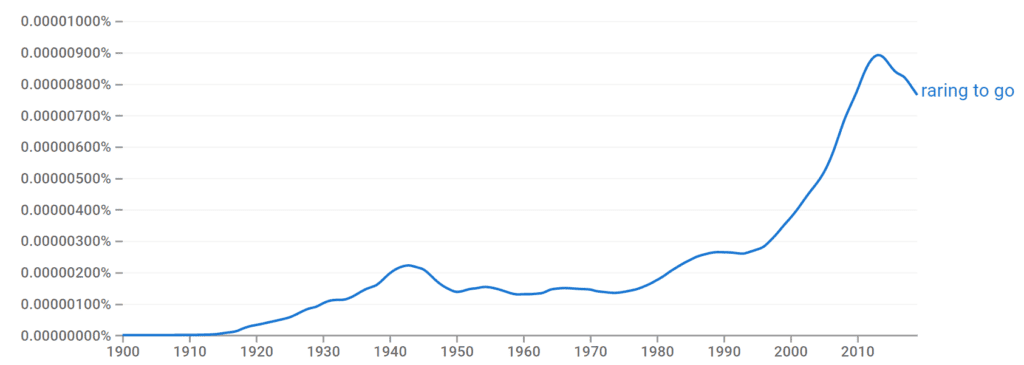The English language has many informal expressions used in speech and writing. Although fun to say, these colloquialisms can create confusion over their use and pronunciations.
Raring to go is one example that often creates confusion depending on the context in which it is used. Idiomatic in nature, there are many arguments about its spelling and the context in which it should be used.
Let’s dig deeper to determine where this phrase originated from and how it should be used.
What Does Raring to Go Mean?
Raring (or rarin’) to go is an American idiomatic phrase with little meaning outside of proper context. It means extremely eager and is generally used to explain the impatience or excitement to get started doing something.
It is an informal phrase used in a lighthearted, descriptive manner.
Idioms are defined as a group of words that have a meaning different from their literal sense. However, it is possible the phrase originated from a more literal meaning but changed through the years due to how it was being used.
Origins of the Term

Raring to go originated in the early 20th century as a term meaning to be at the ready or impatient to be off.
Rare is likely a variant of the word rear, meaning to rise up or stand on one’s hind legs. The word is used to describe a horse rising up in impatience or anxiety before plunging forward.
The explanation makes sense as horses were the primary mode of transportation at the time, and jargon related to their behaviors was common.
Examples Used in Writing
Yet over and over in his 15-page opinion, Nixon … insinuates that Stapleton is a scamp rarin’ to ignore the law. [Denver Post]
Dean Howell says he is raring to go after overcoming the first injury setback of his Crawley career. [The Argus]
Summer wound down, but the pop-punk sextet was raring to go, with another catchy single and a new sophomore album last month. [Ottawa Citizen]
Is Jason Statham raring to join the Fast and Furious cast? [Guardian]
Let’s Review
Although considered an idiomatic phrase, raring to go likely originates from a saying similar to “rearing to go” to describe the rising up of a horse in impatience to move.
The expression first became popular in the Southern United States, likely taking on a local dialect that made “rear” sound like “rare,” thus turning to “raring to go.”
Today, we use the phrase to describe somebody ready to be off or extremely eager to get moving.
